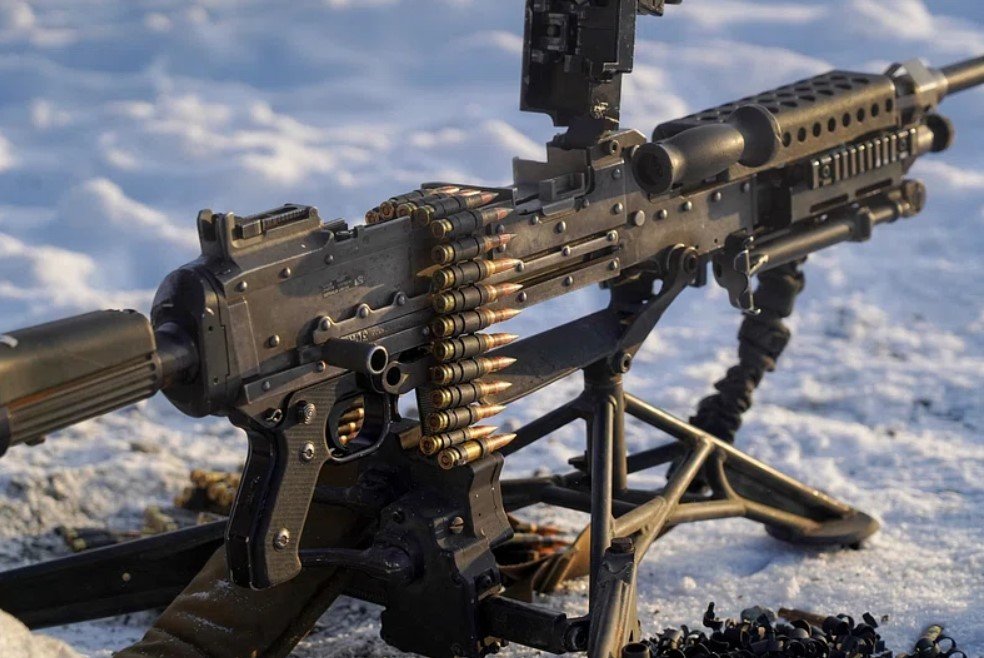As the death toll in Gaza rises, human rights groups and civil society organizations are urging the Canadian government to stop supplying weapons to Israel, which they say violate Canadian and international law. However, the government has tried to downplay its role in arming Israel, citing regulatory loopholes and a lack of transparency.

Canada’s arms trade with Israel
Canada has a long-standing and consistent arms trade relationship with Israel, according to Kelsey Gallagher, a researcher at Project Ploughshares, a peace research institute. The majority of Canada’s military exports to Israel consist of parts and components, which fall into three categories: electronics and space equipment; military aerospace exports and components; and bombs, missiles, rockets and general military explosives and components.
According to the government’s own figures, Canada exported more than $15 million (21.3 million Canadian dollars) worth of military goods to Israel in 2022. Since 2015, when Prime Minister Justin Trudeau’s government was elected, Canadian companies have exported over $84 million (114 million Canadian dollars) in military goods to Israel.
However, the exact nature and destination of these exports are unclear, as Canada does not disclose detailed information about its arms transfers to the public. This lack of transparency has made it difficult for human rights advocates and parliamentarians to hold the government accountable for its role in fueling the conflict in Gaza.
Canada’s legal obligations
Canada is bound by domestic and international law to ensure that its arms exports do not contribute to human rights violations or breaches of international humanitarian law. Under the Export and Import Permits Act, the government is required to assess the potential risks of its arms exports and deny permits if there is a “substantial risk” that the exports could be used to commit or facilitate serious violations.
Canada is also a party to the Arms Trade Treaty, a global agreement that regulates the international trade in conventional weapons and prohibits transfers that would violate arms embargoes, facilitate genocide or crimes against humanity, or undermine peace and security.
However, human rights groups and civil society organizations argue that Canada is failing to comply with these legal obligations by continuing to supply weapons to Israel, which has been accused of committing war crimes and violating international law in its attacks on Gaza. They point out that Israel has a history of using Canadian-made weapons and components in its previous assaults on Gaza, such as the 2008-2009 Operation Cast Lead and the 2014 Operation Protective Edge, which resulted in thousands of civilian casualties and widespread destruction.
Calls for an arms embargo
In light of the ongoing crisis in Gaza, which has killed more than 27,900 Palestinians and injured more than 67,400 since October 7, dozens of Canadian civil society groups have signed a joint statement calling on the Trudeau government to impose an immediate and comprehensive arms embargo on Israel. They say that Canada has a moral and legal responsibility to stop fueling the conflict and to uphold its commitment to human rights and international law.
The statement also urges the government to support the establishment of an independent international commission of inquiry to investigate and prosecute alleged violations of international law by all parties to the conflict, and to increase humanitarian and development assistance to the Palestinian people.
However, the Trudeau government has shown little willingness to heed these calls, and has instead expressed its “unwavering” support for Israel’s right to defend itself. The government has also tried to downplay its arms exports to Israel, claiming that it has not issued any permits for full weapon systems or light weapons to Israel for over 30 years, and that the permits granted since October 7 are for non-lethal equipment.
But advocates say this is misleading and does not reflect the true extent of Canada’s military exports to Israel, which include components that can be integrated into lethal weapons systems. They also say that the government’s assessment process is flawed and does not adequately consider the human rights risks of its arms transfers.
“Unable to defend its own policy, this government is misleading Canadians into thinking that we aren’t exporting weapons to Israel at all,” said Michael Bueckert, vice president of Canadians for Justice and Peace in the Middle East, an advocacy group. “As Canadians increasingly demand that their government impose an arms embargo on Israel, politicians are trying to pretend that the arms trade doesn’t exist.”
